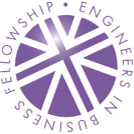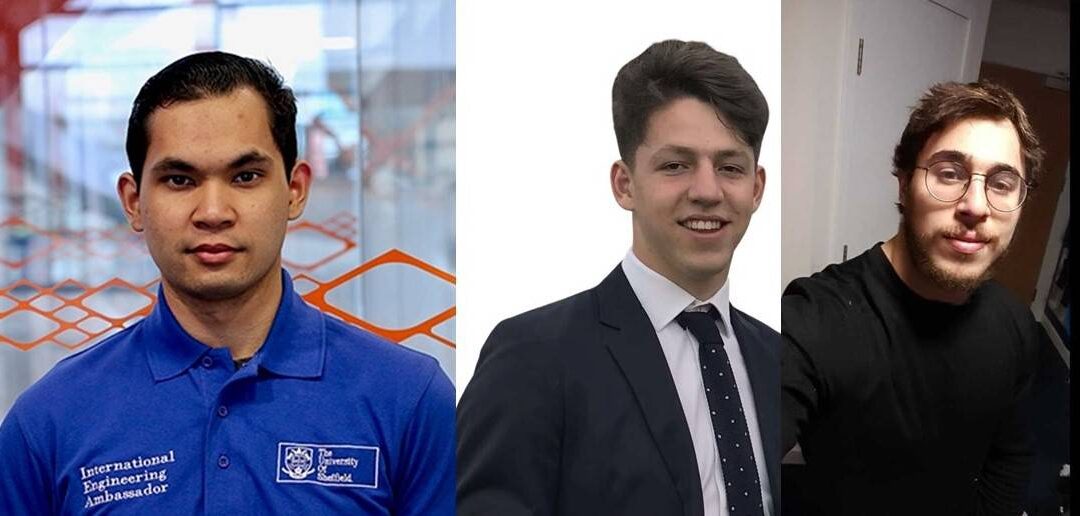University of Sheffield Students Reach the Final of the Engineers in Business Innovation Competition
On 26 October 2020 Anas Nazha, an MEng student of Mechatronics and Robotics Engineering at the University of Sheffield, will lead a team of four as they compete against nine other university teams to win a prestigious Engineers in Business Competition (EIBC) Award, a share of £10,000 and business mentoring from a Sainsbury Management Fellow.
The other three team members are Conor Cullen, an MEng in Aerospace Engineering; Jack Maskell, a BSc in Artificial Intelligence and Computer Science; and Kane Dervan, a MEng in General Engineering, all students at the University of Sheffield.
The EIBC supports and promotes the idea of a combined engineering and business education and provides prize funding to universities to help them encourage more engineers and technology students/graduates to get involved in innovation and entrepreneurship. In a world that is moving and developing so rapidly, these skills are vital to help tackle challenging global problems and to improve our lives.
This year, Anas and his team won the University of Sheffield’s innovation competition and won £1,500 from EIBC for creating Seedsense, a novel take on precision agriculture that uses swarm robotics to collect data and make crop management more effective and efficient. The Seedsense Team then entered and won a place in the national EIBC Champion of Champions Final where they are competing for a Big Ideas Award and a further £3,000. The cash prize will go towards the ongoing development of Seedsense.
Seedsense: Using swarm robotics to enhance precision agriculture
This innovation from the Seedsense Team would use existing technologies such as biodegradable seed sensors, land robots and weather stations to collect valuable information about farmland. This information will take the shape of vegetation maps, soil and crop health, precise weather and the potential to expand on more variables if needed, helping farmers manage their crops more effectively.
Jack Maskell, who grew up around farming, said: “I was always surprised at the inefficient way that crops are sprayed. Spraying pesticides and herbicides uniformly wastes money, damages the environment and has a negative impact on crop health. A solution to this problem benefits farmers, the environment and also increases crop yields, making agriculture more profitable and more sustainable.”
Seedsense will analyse the land, calculate the required equipment and plant eco-friendly seeds to record soil data, which can then be collected by land robots and send online for analysis by weather stations. Seedsense will retain ownership and responsibility for the equipment, offering landowners a low risk, low-cost, subscription-based service to help farmers better manage their crops.
Kane Dervan said of the project: “In a world where natural resources are becoming scarcer, it is vital we minimise our impact by using biodegradable seed sensors to monitor farmland and offer precision agriculture for farms to help them minimise costs and protect the environment.”
Conner Cullen, also on the team, commented: “Our idea was inspired by the concept of swarm robots and the fact that lots of small inexpensive robots, if working together, can achieve a much larger task. However, our first concept of just land rovers wasn’t able to give us the detail in the soil health that we required so we researched and included the idea of the biodegradable seed sensors.”
The Awards Presentation Ceremony – 26 October 2020
The live online dragons’ den style competition will be compered by TV presenter and engineer, Kate Bellingham. Competing against nine other teams, Anas and his group will have just six minutes to convince the judges, through a presentation and Q&A, that Seedsense should be crowned Champion of Champions and take home a £3,000 Big Ideas Award. Amongst other criteria, the judges will be assessing just how much of an impact Seedsense could have on its target market and how it might solve real-world problems and challenges experienced by farm owners and agricultural workers.
The prestigious judging panel comprises:
● Ana Avaliani, Associate Director, Enterprise, Royal Academy of Engineering
● Gareth Trainer, Chair, Enterprise Educators UK
● Henning von Spreckelsen, Director and Investor in Plastecowood
● Steve Cleverley, CEO, Oxentia Ltd, Global Innovation Consultancy
As a student of Mechatronics and Robotics Engineering who is now steeped in entrepreneurship, Anas is passionate about business education for engineers and technologists. He said:
“Learning business skills is really important because it develops the way you think and helps you analyse situations more realistically. For instance, you start considering stakeholders and their requirements and become more open to designing multiple solutions rather than relying only on the latest high-tech solutions, as they’re not always the most practical. Moreover, you enhance your public speaking skills and realise the importance of teamwork, working with different people from different backgrounds that share alternative perspectives.”

